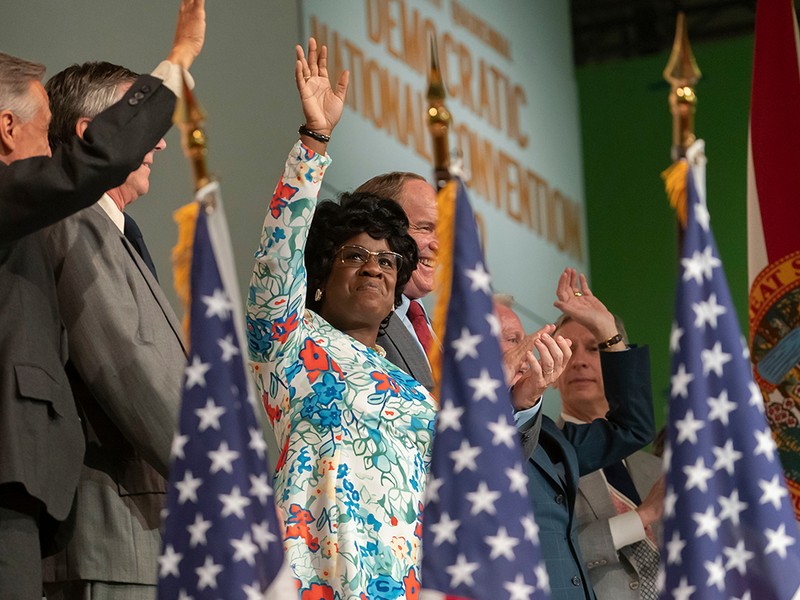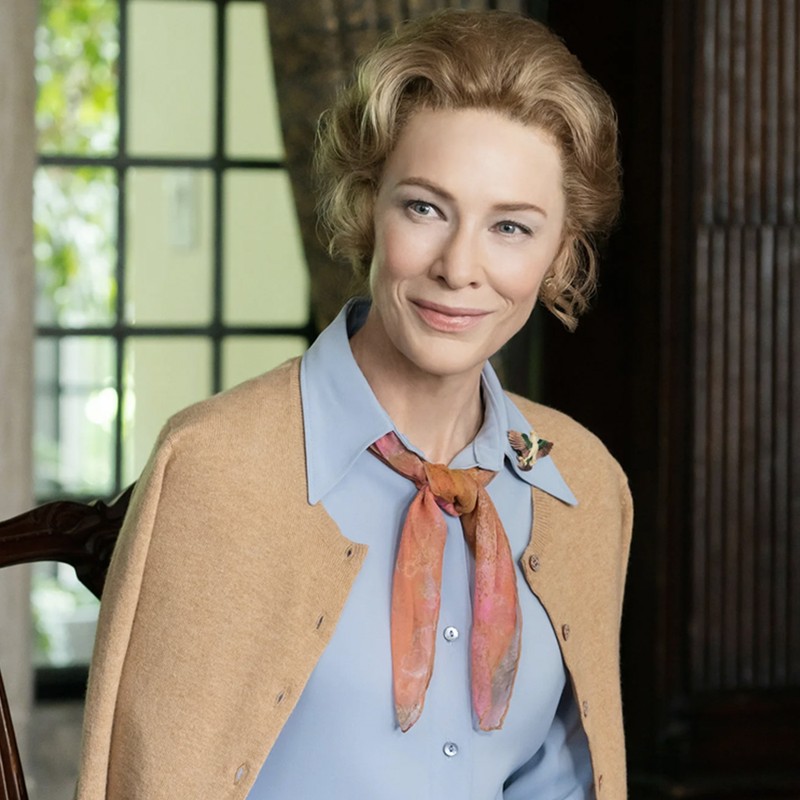What To Watch This Week: Mrs America
Mrs America tells the true story of the movement to ratify the Equal Rights Amendment (ERA), and the unexpected backlash led by a conservative woman named Phyllis Schlafly – "the sweetheart of the silent majority". Through the eyes of the women of that era – both Schlafly and prominent second-wave feminists Gloria Steinem, Betty Friedan, Shirley Chisholm, Bella Abzug and Jill Ruckelshaus – the series explores how one of the toughest fights in the ideological battle of the 70s helped give rise to political organisation the Moral Majority and forever shifted the USA’s political landscape.
Made by FX, the show came out in the US in April to rave reviews. Now, the BBC has dropped the full nine episodes onto iPlayer, and is showing episodes every Wednesday night on BBC Two. Each instalment is named after and focuses on one of the women at play. We begin with Phyllis, played by a pitch-perfect Cate Blanchett. It’s 1971, and the main focus of ambitious Republican wife, mother of six and homemaker Phyllis Schlafly is the ongoing nuclear arms talks between Nixon and Brezhnev, until she is made aware of the potential drafting of young women to fight in Vietnam if the highly popular ERA, a piece of legislation aimed at protecting women against discrimination, is passed by the Senate. She is determined to organise the opposition to the ERA for the 40m American housewives who appreciate the status quo – and along the way hopes to launch her third campaign for Congress.
Episode two take us behind the scenes of the Women’s Liberation movement, and focuses on the group’s up-and-coming poster girl, Gloria Steinem. Played by Rose Byrne – complete with flowing hair and the iconic glasses – this episode explores the disquiet among the ranks as Steinem – a pretty, popular activist who launches feminist magazine Ms with a fabulous party at the Guggenheim – clashes with Betty Friedan (Tracey Ullman), author of decade-old The Feminine Mystique, as the pair grapple with who should lead the fight through the ranks of government.
The third instalment shows the inner workings of Shirley Chisholm’s campaign to become the first black president of the United States. Played by Orange Is The New Black’s Uzo Aduba, Chisholm is a trailblazing African-American, who is determined to fight against a traditional, white, male preserve. Her decision to run in the presidential race exposes the differences of opinion between Friedan, Steinem and leader of the Women’s Movement Bella Abzug (Margo Martindale), all while Phyllis’s campaign to stop the ratification of the ERA – and the “commie, radical lesbians” who support it – gathers momentum.


Other big names in the cast include Elizabeth Banks as Jill Ruckelshaus, the only Republican voice in the inner sanctum of the Women’s Movement, and Sarah Paulson, who plays Phyllis’s friend Alice, who feels increasingly side-lined by some of the more controversial leanings of the Stop ERA campaign. But the cast and calibre of acting isn’t the only reason to tune in to Mrs America. The 70s soundtrack is euphoric and really captures the optimism of the era, across both sides of the debate. And the fashion and décor are spectacles in their own right – especially Phyllis’s colourful suits and frilled blouses.
What also adds to the appeal is that both sides of the political spectrum are explored in a balanced way. We watch Phyllis charm and intimidate her way to the top, while her followers win votes by baking congressmen fresh loaves of bread, labelled: “To the breadwinners, from the breadmakers.” Mother and daughter luncheons are held, decrying the rise of women wanting it all. “Women are going to find themselves with two full-time jobs,” Phyllis warns, with an eerie sense of prescience. “And they’re going to be exhausted and unhappy and feel like they’re not doing either well.” Yet we still witness her submit to sex with her husband Fred (Mad Men’s John Slattery) when she doesn’t want to. Similarly, we see the Women’s Movement brim with optimism, organising free childcare while mothers paint powerful placards in the lobbies of city halls. But behind closed doors, its leaders can’t agree on how to present a united front.
While the miniseries focuses on the women, fights and fallout on both sides of America's sex equality war, it’s inevitable that this is a scene still dominated by men and much of the plot demonstrates the many hoops the women must jump through just to be heard. “They’re never going to take us seriously,” says Steinem, after being double-crossed by a congressman at the 1972 Democratic conference. “We’re just walking wombs.” It’s worth watching Mrs America knowing that Phyllis Schlafly got what she wanted – more than 50 years on, the Equal Rights Amendment has never been ratified, and women are still not protected against discrimination by law in the USA. While the show does draw parallels to politics in 2020 America, this is a nuanced watch that doesn’t vilify any of the women across the series, instead showing them as complex, ambitious and powerful.
All nine episodes of Mrs America are available to watch on iPlayer now
Visit BBC.co.uk
DISCLAIMER: We endeavour to always credit the correct original source of every image we use. If you think a credit may be incorrect, please contact us at info@sheerluxe.com.


